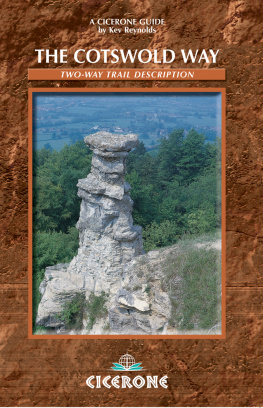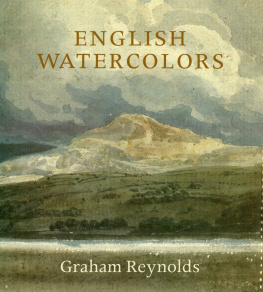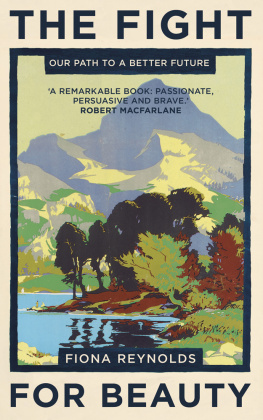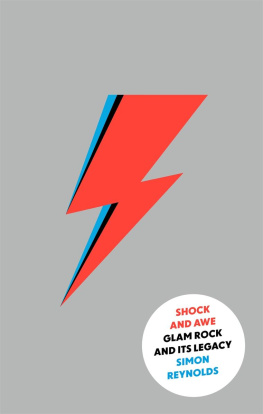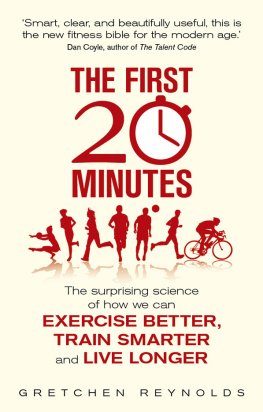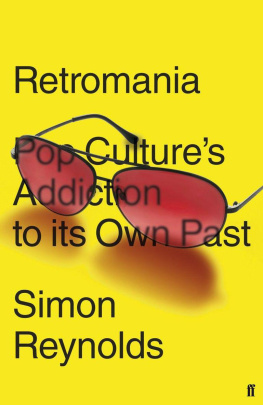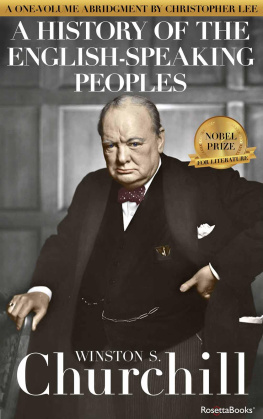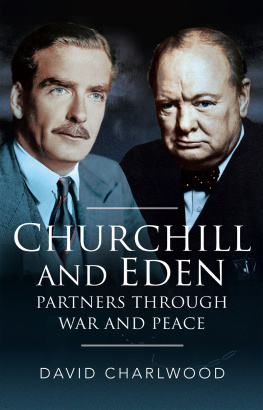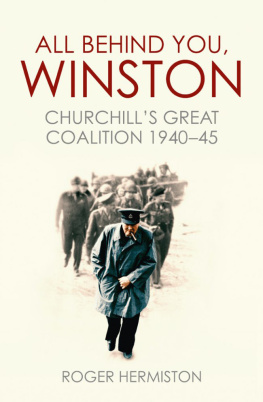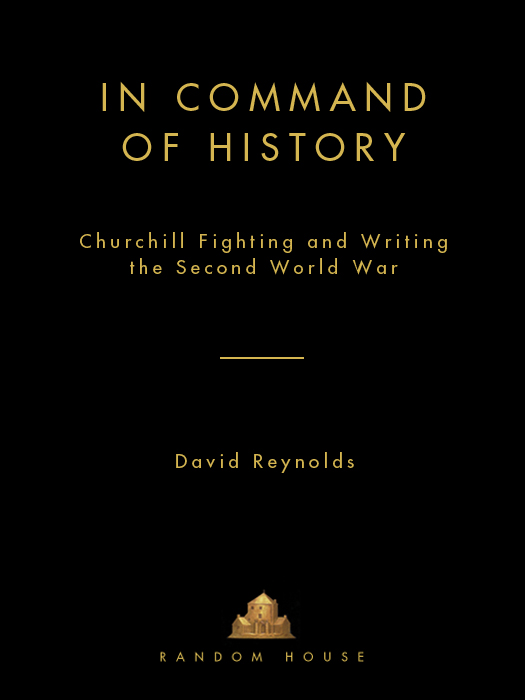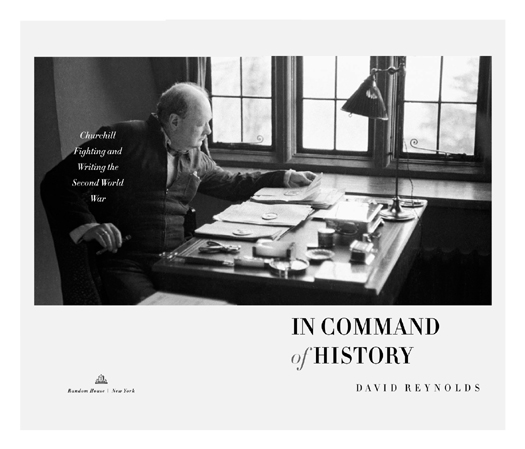Copyright 2005 by David Reynolds
All rights reserved.
Published in the United States by Random House,
an imprint of The Random House Publishing Group,
a division of Random House, Inc., New York.
R ANDOM H OUSE and colophon are registered trademarks
of Random House, Inc.
LIBRARY OF CONGRESS CATALOGING-IN-PUBLICATION DATA
Reynolds, David.
In command of history : Churchill fighting and writing
the Second World War / by David Reynolds.
p. cm.
eISBN: 978-0-307-82480-6
1. Churchill, Winston, Sir, 18741965. Second World War. 2. World
War, 19391945Historiography.
3. World War, 19391945Personal narratives, British
History and criticism. I. Title.
D743.42.R48 2005
940.53092dc22 2004051087
www.atrandom.com
v3.1
Looking back it seems incredible that one could have got through all these six volumes and I suppose nearly two million words.
Winston Churchill, 12 May 1954
I am often asked: How much of his books did he really write himself? Its almost as superficial a question as asking a Master Chef: Did you cook the whole banquet with your own hands?
Denis Kelly, one of Churchills research assistants, 1985
Lets always remember that the Churchill Memoirs are the biggest literary and historical project that LIFE, or for that matter any other publication, has ever undertaken.
Andrew Heiskell, publisher of Life, April 1947
Words are the only things that last for ever.
Winston Churchill, May 1938
CONTENTS
INTRODUCTION
A nother book on Churchill? Can there be anything new to say? The answer is, emphatically, yes. Churchill waged the Second World War twice over: as Prime Minister steering his country from disaster in 1940 to victory in 1945, and again as the conflicts principal historian, with six volumes of memoirs published over the subsequent decade. The saga of his premiership is celebrated, the story of his war memoirs virtually unknown, yet Churchill the historian has shaped our image of Churchill the leader. As he liked to say when locked in wartime controversy, I shall leave it to history, but remember that I shall be one of the historians.
No other war leader performed such a double act. By May 1945, Hitler, Mussolini, and Roosevelt were all dead. Stalin lived another eight years but kept his silence. De Gaulle published three volumes of memoirs but not until a decade after the wars end, and an English translation was slow to appear. Churchill, by contrast, was quick off the mark, wrote on an epic scale, and reached a global audience. The Second World War appeared between 1948 and 1954 and totaled nearly two million words. The book was published in fifteen different countries and eleven languages, while extracts appeared in some fifty newspapers and magazines in forty countries. These extracts were on a generous scale: The New York Times, for instance, devoted thirty full-page installments to all except one volume, reproducing more than one third of the text. People who never opened the books picked up many of Churchills themes from these serial versions and their headlines.
So Churchill made history as statesman and as historian. And he had performed a similar feat twenty years before. For most of World War I he stood at the apex of the British governmentat the Admiralty or the Ministry of Munitionsand between 1923 and 1931 he published six volumes about that war and its aftermath, under the title The World Crisis. The First World War and Churchills account of it influenced the way he waged the Second and how he wrote about it.
For Churchill was above all a man of words, who made his living through books and journalism. In the 1920s and 1930s, this was a precarious existence, particularly for someone of such sybaritic tastes, and in 19371938 he even put Chartwell, his beloved country house in Kent, on the market. The Second World War, however, made Churchills fortune and also secured his place in history. The intricate book and newspaper package crafted in 19461947 was worth $2.23 millionthe biggest American nonfiction deal to that time. Translating that into todays values is an imprecise business (see A Note on Money), but at the very least we are talking about $18 million dollarsmaybe $50 millionand, thanks to Churchills canny lawyers, most of it came tax free. As for the volumes themselves, much of their authority derived from the mass of wartime documents that Churchill included, courtesy of a unique deal he had extracted from the British Cabinet Office. At the time Churchill wrote, no ordinary mortal could expect to inspect, let alone reprint, wartime documents until the twenty-first century. The Second World War also owed its power to Churchills words-manshipto purple passages like the evocation of his mood on becoming Prime Minister in May 1940 (I felt as if I were walking with destiny, and that all my life had been but a preparation for this hour and for this trial) or his reaction to the news of Pearl Harbor (Being saturated and satiated with emotion and sensation, I went to bed and slept the sleep of the saved and the thankful). Even now, writers follow the phases and phrases by which he structured events: The Gathering Storm, Their Finest Hour, The Grand Alliance, The Hinge of Fate, Closing the Ring, Triumph and Tragedy. J. H. Plumbs judgment in 1969 holds true today: we still move down the broad avenues which he drove through wars confusion and complexity.
Churchill was a politician as well as a historian. He was able to write The Second World War only because he lost the election of July 1945. Otherwise, the burdens of office would have been too much for his time and health as he entered his seventies. Of course, most political memoirs are written in retirement, mellow or bitter, but these are unusual in being the memoirs of a past and future Prime Minister. Wounded by the rejection of the people, Churchill was determined to get back to 10 Downing Street, and to do so by national election rather than party coup, as in 1940. The Second World War was therefore composed with one eye on his political futurein the sense both of watching the clock and also of minding his words. In the event, Churchill lost the election of February 1950 and had to wait until October 1951. If he had returned to Downing Street in 1950, his publishers had contingency plans to have the last volumes completed by another hand.
Churchill was also a man of war. He started adult life as a cavalry officer and, although quickly vaulting into journalism and then politics, he returned to the front for a time in 1916 and never lost his fascination for things military. This set him apart from other twentieth-century Prime Ministers, indeed from all his predecessors since the Duke of Wellington. But the Iron Duke had commanded at the highest level and with supreme success, whereas Churchill never rose above the rank of battalion commander in a quiet sector of the trenches. Deep down, he yearned to be a great general, and his supreme hero was Napoleonanother little man in a big hurry. At the Admiralty in 19141915, Churchill had tried to run operations on sea and land, and the disaster at Gallipoli haunted him for decades. As Prime Minister from 1940 to 1945 he finally had the power to wage war as grand strategist and, thanks to modern communications, as battlefield tactician in a way no British leader has done before or since.


